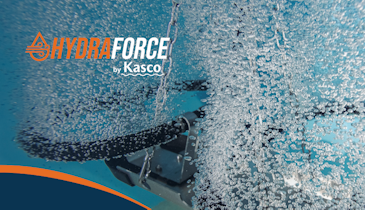
The team at the Eudora Water Treatment Plant includes, from left, Travis Ramos, Class IV operator; Rusty Tournade, operator foreman; Greg Perkins, Class I operator; and Lawrence Steele, Class IV operator.
Rusty Tournade came to the water industry only nine years ago.
He started with the City of Eudora, in Northeast Kansas, in 2012 as a seasonal worker on the mowing crew. Then he went full time, reading water meters for two weeks a month and otherwise working on the streets or...









